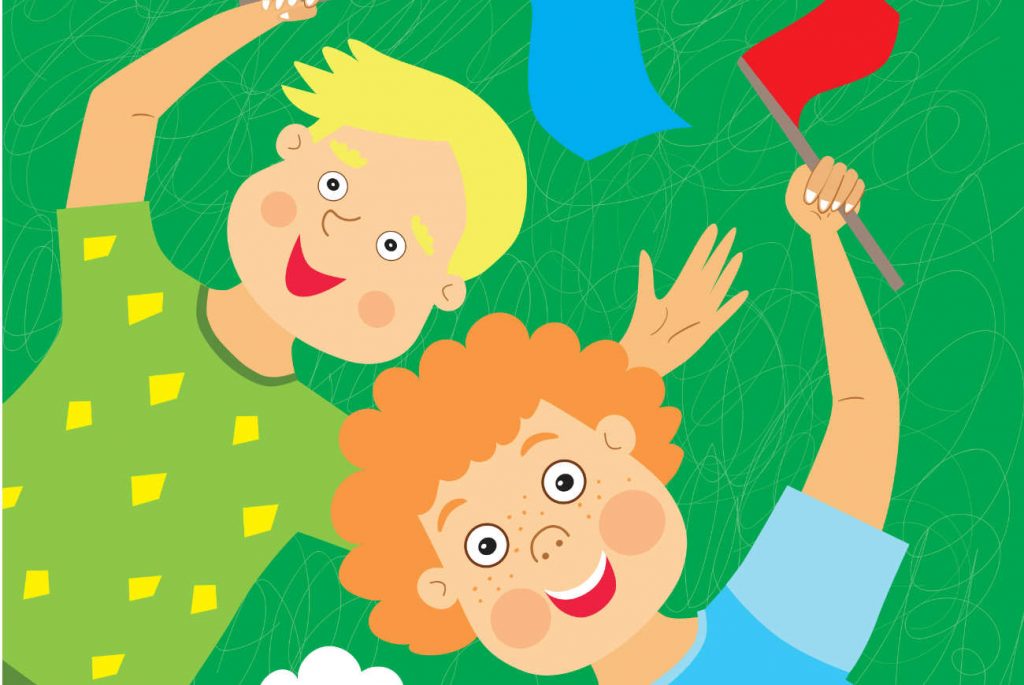Helping others and fostering social conscience
Storyberries offers great tips as well as free children's books to help kids understand and develop the valuable skills of teamwork and helping others.

Storyberries offers great tips as well as free children's books to help kids understand and develop the valuable skills of teamwork and helping others.

As they grow older, children need to assume more responsibilities and learn habits, discipline, and rules for living together. Collaboration is very beneficial in promoting empathy and respect for others, since as well as offering opportunities for personal growth, it also helps young people to appreciate and value the work that others do in caring for them.
A good way of doing this is to involve them in household chores, taking into account their age and degree of maturity.
The first step is to show how the task needs to be done. If your child is not given clear and precise instructions or a demonstration, they will not know how to do it. It may then become a source of frustration that they do not want to repeat.
Teach them to do household chores little by little – children are best able to learn chores progressively, both in the number of tasks and in the degree of difficulty. It is also important to adapt responsibilities to their age.
Storyberries offers free online children’s books, and practical tips for parents, to encourage children to develop the vital skills of collaboration and helping others:

Giving clear and specific instructions
Children get lost if a task is too general. So instead of saying, “please tidy your room,” It is easier when tasks are broken into manageable steps. So we might start by saying, “Please put your toys in the box.”

Ensuring the experience of work is enjoyable
Work is much more fun for kids when we join in with them, when we make it into a game or when they are given rewards for their collaboration. Children who receive praise and the sense that their work is valued are usually more responsible than those who only get criticism.

Being positive
If it doesn’t go well, we can still praise the efforts they made. Then, if you need to fix it, involve them in the fix. It doesn’t help if you tell them it’s okay and then go and fix it, as you might lose a valuable opportunity for learning. Try to encourage a positive attitude towards housework and avoid handing out household chores as a punishment.

Be gender aware when allocating tasks
Make sure you do not divide tasks according to gender, but ensure kids can participate in all tasks equally.

Helping children to work together:
If children are going to be working together on a joint project, help them to agree who is going to do each task, and how it should be done. To help each of them to remember their own order of tasks, you might want to encourage them to make a plan of action on a large piece of paper or card.

Children under three years
From a young age, kids can begin to do simple tasks at home, such as picking up their toys and putting books back after using them.

Children from three to six years
Putting toys away and tidying their bedroom
Putting dirty clothes in the laundry basket
Choosing which clothes to wear and getting dressed on their own
Helping at mealtimes: setting the table (the youngest ones can help with simple things like napkins or plastic dishes) or being your assistant while preparing food
Assisting with grocery shopping: helping choose items, finding products or helping place items on the checkout conveyor belt

Children from six to twelve years
Watering plants
Helping to care for pets
Helping in the garden
Tidying their bedroom
Making the bed
Cooking together
Separating and folding items of laundry
Putting clothes away
Washing the dishes or stacking the dishwasher


Keeping Lala Land Clean
In this simple and delightfully illustrated book, all the animals in Lala Land help to keep their house clean and tidy! A super book to introduce young children to concepts of working together and helping others.

Numpurrs
In this beautifully depicted story, twenty pussycats show what they can achieve when they work together!

Whose Shoe Is This?
A delightful short story about a young boy Fezile who has fun trying to find his Grandmother’s shoe. A super book to illustrate themes of kindness and helping others.
Article by Luzmery M. Romero Gamboa and Fleur Rodgers

Luzmery works in the area of clinical psychology as a psychotherapist for children, adolescents and families. Since 2016, she has run a Psychological Center in Venezuela called Psicoluz. She offers workshop facilitations to parents, is involved in recreational activities for children, and has been working as a freelancer since 2017 performing online psychotherapy.

Fleur is a meditation teacher in France and uses a compassion and loving-kindness based approach to meditation and slow-minded living. Fleur posts regularly to Instagram @rodgers.fleur . She has two children, is a qualified teacher in adult education and is the founder of Timeouttobreathe.com
